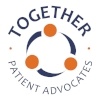
Imagine this scenario: You've lying in a hospital bed on a ventilator (breathing machine). You've just had an unexpected heart attack. Your family is gathered around you. Do they know your wishes? Have you designated someone to make decisions on your behalf?
If you answered “no,” you’re not alone. A 2017 study showed that out of nearly 800,000 people, less than 40 percent had completed an advance directive. Without an advance directive, your medical team or loved one has to guess what treatment to give you when you're unable to speak for yourself. Doing so without benefit of knowing what you’d want can be a terrible burden for them to bear. I've personally counseled patients who were suffering with guilt from these decisions years later and I've watched families be torn apart when members have had different opinions about what they think should happen to their parent in a life or death situation.
How an Advance Directive Helps You
An advance directive is a legal document that explains your wishes in the event you're unable to make your own healthcare decisions or unable to communicate those decisions. Decisions commonly outlined in an advance directive include whether or not you want to have artificial respiration or a breathing machine, whether you want chest compressions or shocks to the heart to restart it and whether or not you want artificial nutrition. Some advance directives will include your goals of care around comfort and end of life, including such details as whether you want music playing at the time of your death. There's really no detail too small to include, if it's important to you.
Some fear that if they opt to decline life-saving treatments like chest compressions that their medical team will stop treating them. This is not the case. Your team will still treat you, but should your heart stop on it's own, they won't start it again and you'll be allowed to die at that time.
The most important decision to include in your advance directive is who you entrust to verbalize these decisions for you. This person can be a family member, a friend or someone you hire to act as your decision maker. Importantly, this person should be someone you trust to follow your wishes, not their own, and someone who you know can handle making these decisions during a very emotionally turbulent time. This person isn't always going to be your closest family member.
When to Create an Advance Directive
At this point you may be thinking, “I’m healthy, I don’t need an advance directive now. I can wait until I’m sick or older.”
Here are two important reasons why you should not wait. First, life is unpredictable. You could be involved in a serious accident tomorrow. If at any point you change your mind about any part of the document, you can change it. In fact, you should review it from time to time and update it as necessary.
Second, by creating an advance directive when you’re healthy, you allow yourself the time to carefully consider how much treatment you would or would not want in life-threatening situations. When you document these choices, your loved ones or medical team don’t need to guess at what your wishes would be.
But before you make treatment decisions, it’s important to have a clear understanding of what each one looks like in real life. Not the idealized TV or movie version.
The Real CPR – It’s Not What You Think
We’ve all seen television shows and movies where a comatose patient revives immediately after receiving CPR. Just like magic, she is back to normal. Is that realistic? In a word “no.” It is, in fact, magical thinking.
In 2015 the medical journal Resuscitation published a study of how CPR was portrayed on medical dramas airing between 2010 and 2011. The study found, “CPR was depicted 46 times in the 91 episodes, with a survival rate of 69.6%. Overall, the shows portrayed an immediate survival rate nearly twice that of actual survival rates.”
In 2020 some real life CPR statistics were published in the medical journal, Critical Care. Researchers analyzed 140 studies concerning survival rates among adult cardiac arrest patients receiving out-of-hospital CPR. This is, in part, what they found:
- Rate of survival to hospital admission -- 22.0%
- Survival to hospital discharge -- 8.8%
- 1-month survival rate -- 10.7%
- 1-year survival rate -- 7.7%
How Your Health Influences Your Outcome
The success of CPR or other resuscitative treatment is significantly impacted by your overall health. One study published in Chest found that patients who had serious underlying illnesses like advanced heart failure, chronic obstructive pulmonary disease, cancer or cirrhosis who received CPR in the hospital had significantly lower survival rates than patients without those chronic illness.
Without fully understanding how your underlying health condition impacts the likely outcome of your treatment, you or your loved one cannot make a fully informed decision.
That’s why it’s critical for you with or without your loved ones to meet with your doctor to discuss your realistic chances of survival with CPR, a ventilator, or other treatment. Also discuss what your chances are of returning to your current condition, how long that will take, and what you’ll need to do to get there. Unfortunately, the miraculous recoveries portrayed on TV are uncommon. The better prepared we are to understand what is likely for us, the better we are able to make the decisions most consistent with our goals and values.
Talking to Your Doctor & Loved Ones
Having end-of-life or critical care treatment discussions isn’t easy. How do you even know where to begin?
The Conversation Project is dedicated to “helping people share their wishes for care through the end of life.” On their website you’ll find a number of guides to help you reach that goal, including Your Guide for Talking with the Health Care Team.
The Stanford Medicine Letter Project also has a template that can help you. This letter from you to your doctor has questions that prompt you through a thought process covering what is important to you, who can make decisions on your behalf, how decisions are communicated, and what level of treatment you want.
You’ll notice the letter says that you understand it’s important to communicate your wishes to your doctor and your family. This Conversation Project’s Conversation Starter Kit helps you to start thinking about what’s important to you, then how to start talking and keep talking to your loved ones.
What to do Next
Hopefully you now understand why it’s important for you to have an advance directive and are ready to use some of the tools mentioned in this post. The next step will be completing an advance directive. I’ll cover that, along with some additional resources in my next post.



.gif?width=200&name=NAHAC-Member-Badge200x112+(1).gif)


